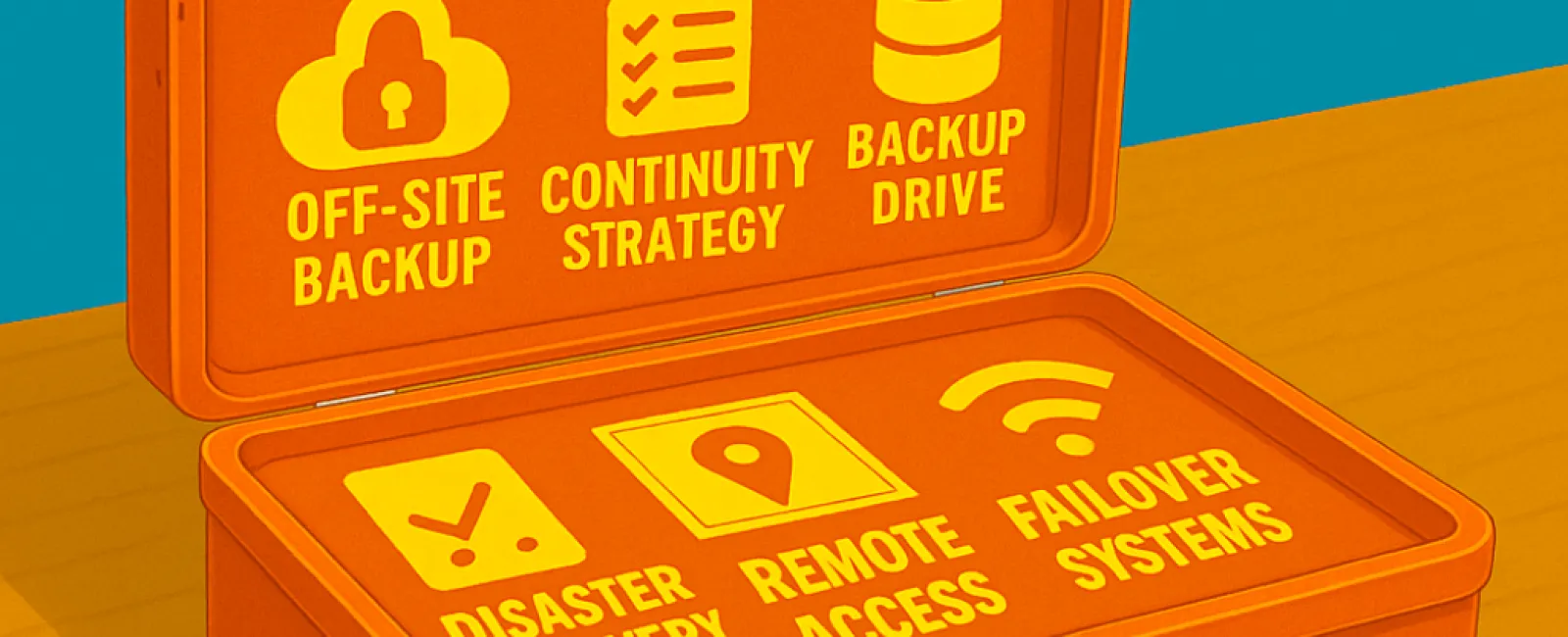July 28, 2025
Unexpected power failures, cyberattacks, hardware malfunctions, and natural disasters often strike without warning, severely impacting small businesses. Simply relying on backups isn't enough; restoring a file doesn't guarantee your business stays up and running. Without immediate access to critical systems, the ability to support remote work, and clear communication with your team and clients, even brief interruptions can cause lasting damage. A trusted IT partner should equip you with more than just backups — they should deliver a comprehensive continuity strategy that keeps your business functioning seamlessly through any crisis.
Backups Alone Won't Cut It — You Need a Robust Continuity Strategy
Make no mistake: backups are critical, but they represent just one piece of the puzzle. What truly safeguards your business is a well-designed business continuity plan — a forward-thinking approach ensuring uninterrupted operations before, during, and after emergencies.
When your systems crash, data becomes unreachable, or your workspace is compromised, a local backup file won't save the day. Without a detailed recovery plan to promptly restore operations, you expose your business to substantial losses in revenue, reputation, and compliance.
Backups vs. Continuity: Understanding the Critical Difference
Here's the common misconception many fall into:
● Backups help retrieve lost data.
● Continuity ensures your business keeps running smoothly, whatever happens.
A powerful continuity plan addresses essential questions such as:
● How quickly can we recover critical functions?
● Where will our team operate if the office is out of commission?
● Which applications and systems are vital to maintain?
● Who leads the recovery effort when disaster strikes?
It also includes these indispensable elements:
● Encrypted, geographically dispersed, and immutable backups
● Prioritized recovery objectives (RTO/RPO) that match business needs
● Preparedness for remote work scenarios
● Redundant infrastructure and automatic failover systems
● Scheduled disaster drills to validate readiness
If your IT provider cannot confidently guide you through these critical components, you're not truly protected — you're just fortunate until now.
Ask These Vital Questions Before It's Too Late
If disaster strikes tomorrow, will your business keep moving forward?
Make sure to ask your IT provider:
● How rapidly can we recover from a ransomware attack?
● Are backups regularly tested and fully inclusive of all systems?
● What is the contingency plan if a flood or fire shuts down the office?
● Is our continuity framework fully compliant with industry regulations?
● Can we continue to serve clients efficiently if the team must work remotely?
If you lack complete confidence in these answers, your business may already be at serious risk.
Disasters Are Inevitable. Downtime Doesn't Have to Be.
You can't control when outages, storms, or cyber threats occur, but you can control your response strategy.
An excellent IT provider helps you bounce back quickly.
A truly exceptional partner ensures your operations never miss a beat.
Curious about how prepared your business really is?
Click Here or call us at 1300 136 410 to schedule your FREE 15-Minute Discovery Call— let's guarantee disasters turn into minor blips, not major downtime.



